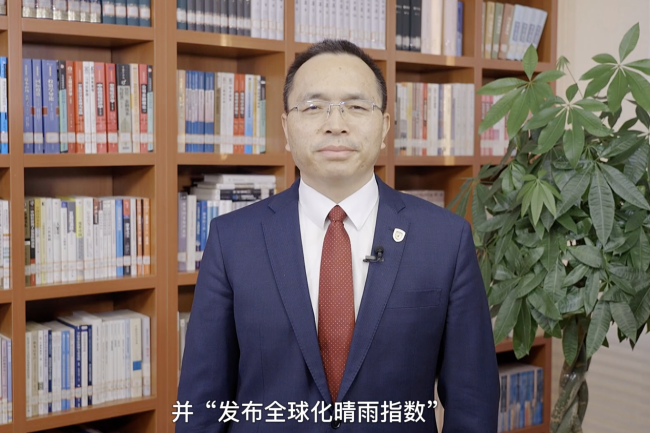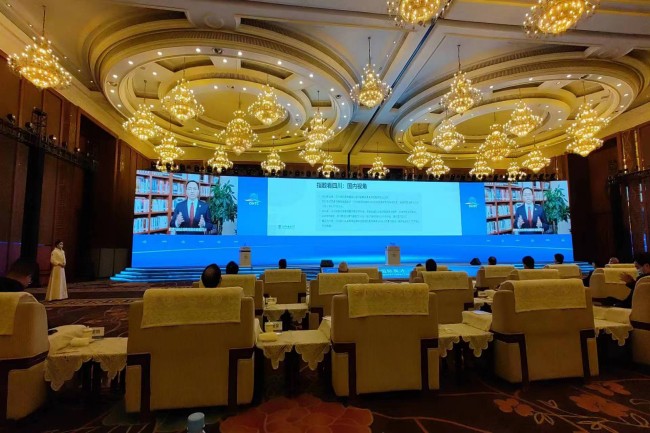- Research
- Research Centers
- Journals
- Admission
- Introduction
- Programs
- Application
- Alumni & Giving
- Alumni Club
- Giving
Beijing Foreign Studies University (BFSU) released its 2022 Global Barometer Index at the 20th Western China Overseas Hi-tech and High Talents Conference, which opened on Dec 10 in Chengdu, capital of Sichuan province.

Yang Dan, president of BFSU and deputy secretary of the CPC BFSU committee, delivers a keynote speech on the Global Barometer Index at the 20th Western China Overseas Hi-tech and High Talents Conference via video link. [Photo/bfsu.edu.cn]

Yang Dan, president of BFSU and deputy secretary of the CPC BFSU committee, releases the 2022 Global Barometer Index. [Photo/bfsu.edu.cn]
In his speech, Yang Dan, president of BFSU and deputy secretary of the CPC BFSU committee, introduced the university’s Global Index project, which has been developed as a new approach to observe the world. BFSU has also built Indexpedia, the world’s first cross-language index service platform oriented to serve scientific research and education. It includes more than 4,000 key indexes, covering such fields as economy, science and technology, politics, and culture. Moreover, by combining international perspectives with domestic concerns, BFSU has built a multi-theme index matrix covering major countries and regions across the world.
Elaborating on the university’s new project, Yang said that the 2022 Global Barometer Index includes three first-tier indicators, eight second-tier indicators and 28 third-tier barometers, with economy, society and politics as the horizontal coordinates and participation degree and participation basis as the vertical coordinates. The system measures the participation degrees and basis in globalization of 146 countries and regions in the world from 2000 to 2020, and conducts analysis and makes predictions on trends of their future development by using a global barometer.
Yang noted that from a spatial distribution perspective, the COVID-19 pandemic and other factors have narrowed the gap of the globalization level between countries and regions in the world in 2020. However, from a barometer index perspective, their impact on the participation basis of most countries and regions has been limited.
Yang added that the indexes' assessment of the economy, society and people' s livelihoods in Sichuan province shows that local residents’ evaluation of the efforts in building a clean and honest government has steadily improved year by year and most consumers have been optimistic about the economic situation in the province. The index reveals that the local economy has been dynamic and resilient.
The BFSU Global Barometer Index is an interdisciplinary, pioneering and original research project. It has received strong support from researchers at the Chinese Academy of Sciences and universities such as Beijing Normal University, as well as from teachers and student research teams at the International Business School, the School of Russian and the School of European Languages and Cultures at BFSU.